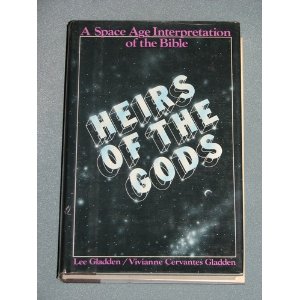 I know a lot of people would assume (or, even, be very adamant about) the idea that human beings will have to shed their attachment to religious faith before they will be able to colonize space. I’m sure Carl Sagan would say that if he were here today — or that he said that when he was alive. And I’m sure Christopher Hitchens would have said it had the question been put to him (which I don’t think it was).
I know a lot of people would assume (or, even, be very adamant about) the idea that human beings will have to shed their attachment to religious faith before they will be able to colonize space. I’m sure Carl Sagan would say that if he were here today — or that he said that when he was alive. And I’m sure Christopher Hitchens would have said it had the question been put to him (which I don’t think it was).
And I get that view. It makes sense that human beings will have to rid themselves of tribal loyalties and of anti-intellectual / anti-scientific sentiments (both of which religious faith often engenders, no doubt). But we need to colonize space. (After all, it’s been said that the reason the dinosaurs went extinct is because they didn’t have a space program.) And there’s a certain sense in which we need religious faith to help us do that.
So I agree with William Sims Bainbridge and blogger “SpakKadi” (both below) that religion will have a significant role to play in future human space colonization. Bainbridge’s view is that a “galactic religion” would enable human beings to see space travel as well as the heavens themselves as sacred which view in turn would likely motivate us to colonize the universe.
…we need a new definition of spaceflight that will energize investment and innovation. I suggest a return to the traditional view: The heavens are a sacred realm, that we should enter in order to transcend death.
…creation of a galactic civilization may depend upon the emergence of a galactic religion capable of motivating society for the centuries required to accomplish that great project. This religion would be a very demanding social movement, and will require extreme discipline from its members, so for purposes of this essay I will call it The Cosmic Order.
— from Religion for a Galactic Civilization 2.0 (August 20, 2009) by William Sims Bainbridge
And, if the history of human colonization on earth is any indication, blogger “SpakKadi” has a point when he/she points out that religion and money will likely be the prime movers in future off-earth colonization. This is from Religion in Space (April 05, 2005) by “SpakKadi”:
When I think about colonizing space, I think back to the colonization of the Americas. The two primary motivations for the European colonization of the Americas were money and religion. And the two primary enablers of colonization were governments and the Catholic Church. Other than governments, religions are the most effective organizations at collecting large sums of money by taking a little bit of money from a lot of people. They are also great at utilizing a natural resource known as people. When people go on mission trips, they are almost always asked to go outside their comfort zone to do something they never would have done otherwise. When well known religious leaders say something, a lot of people listen. Imagine if the Pope said that colonizing space was a moral obligation. What would that do for manned space exploration?
… I think religion may have to be a prime mover if man ever wants to move beyond our little blue sphere.
And here’s an actual example of the power of religion in human space exploration (in this case, in Soviet Russia). (I wish I had an easy way to get a copy of this pdf!)
Astropolitics: The International Journal of Space Politics & Policy
Volume 7, Issue 2, 2009
Viewpoint: Space and Religion in Russia: Cosmonaut Worship to Orthodox Revival
DOI: 10.1080/14777620903113857
Virgiliu Popa* pages 150-163 Available online: 06 Jul 2009
Abstract
This article follows the evolution of the relationship between the Russian space program and spirituality from an astrosociological perspective. It demonstrates that the Russian space program has its roots in Nikolai Fedorov’s Cosmism, which envisaged the technological resurrection of the dead and space colonization, and in Marxism, which used space exploration as a means of proving atheism. Whereas the conquest of space has been perceived throughout the world in an ambivalent way, either as an act endorsed by Divinity or as a blasphemous feat, the Soviets took pride in reinventing the “Tower of Babel” in order to “make a name for themselves” and dethrone God (Genesis 11:4). Moreover, the technological miracles of spaceflight and the worship of Yuri Gagarin support the view that Soviet Communism was a state religion. After the fall of the Soviet Union, Orthodox Christianity brought its own contribution to the Russian space program. It will be also shown that, even during the Soviet period, appearances contrasted with the feelings of many of the cosmonauts.







